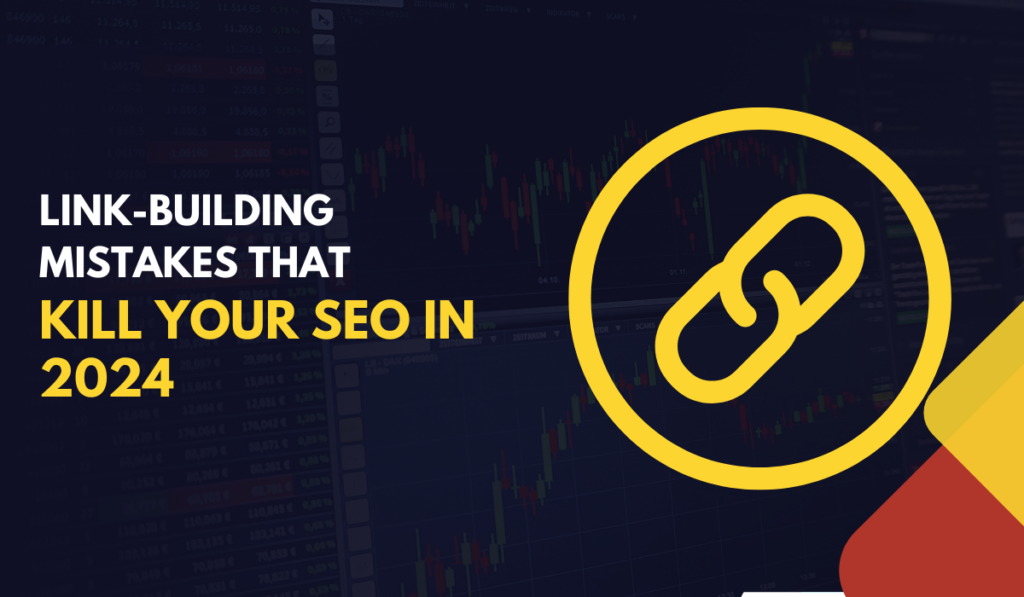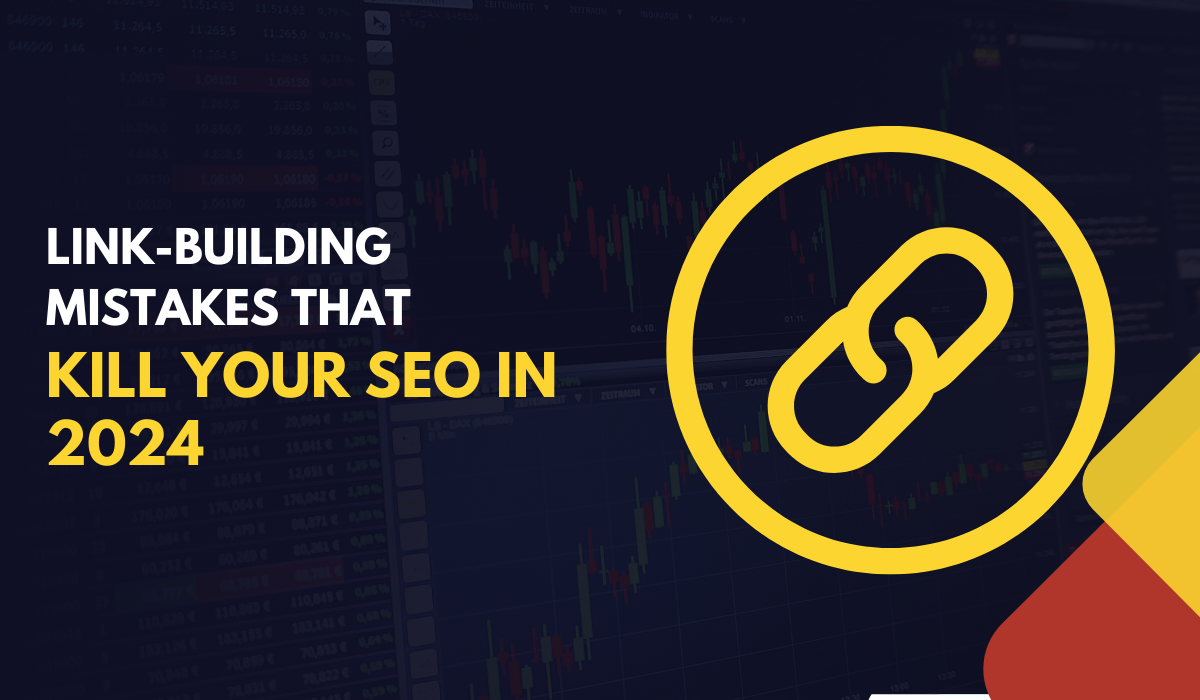
In the fast-paced and ever-changing landscape of digital marketing, search engine optimization (SEO) has become an indispensable tool for businesses seeking to establish a strong online presence and attract organic traffic to their websites. As we propel forward into 2024, the importance of SEO continues to grow, with search engines becoming increasingly adept at delivering the most relevant and high-quality results to users. Among the many factors that contribute to a successful SEO strategy, link building stands out as a critical component that can make or break your website’s visibility and authority in search engine results pages (SERPs).
Link building, the process of acquiring hyperlinks from other websites to your own, has long been recognized as a fundamental pillar of SEO. These links act as virtual “votes of confidence,” signaling to search engines that your website is a valuable and trustworthy resource worthy of higher rankings. However, as search algorithms have evolved and become more sophisticated, so too have the challenges and complexities surrounding link building. In 2024, the landscape of link building is more nuanced and multifaceted than ever before, requiring a keen understanding of best practices, potential pitfalls, and the ever-present risk of penalties.
Gone are the days when quantity trumped quality, and websites could easily manipulate search rankings through spammy, low-quality links. Today, search engines like Google have become incredibly proficient at detecting and penalizing manipulative link-building tactics, making it more crucial than ever to approach this aspect of SEO with caution, integrity, and a focus on delivering genuine value to users. The consequences of falling victim to link-building mistakes can be severe, ranging from a significant drop in search rankings to a complete removal from search results, effectively rendering your website invisible to potential customers.
In this blog post, we’ll dive deep into the most common link-building blunders that can spell disaster for your SEO efforts in 2024. From the perils of buying links and over-optimizing anchor text to the importance of relevance, quality, and user experience, we’ll provide you with a comprehensive guide to navigating the complex world of link building in the modern era.
By understanding these critical mistakes and learning how to avoid them, you’ll be empowered to develop a robust, effective, and future-proof link-building strategy that drives sustainable growth and success for your website.
Buying Links
One of the most egregious link-building mistakes that can kill your SEO in 2024 is buying links. While it may seem like a quick and easy way to boost your backlink profile, search engines have become exceptionally adept at identifying and penalizing websites that engage in this practice. Buying links not only puts your website at risk of a manual penalty but also erodes the trust and credibility you’ve worked so hard to build with your audience. Instead of resorting to this black-hat tactic, focus on earning high-quality, natural links through valuable content and genuine relationships with other websites in your niche.
Over-Optimizing Anchor Text
Another common link-building mistake to avoid in 2024 is the over-optimization of anchor text. Anchor text refers to the clickable text in a hyperlink, and while it’s important to include relevant keywords, overusing exact-match anchor text can trigger red flags for search engines. Instead of stuffing your anchor text with keywords, aim for a natural and diverse mix that includes branded terms, generic phrases, and partial-match keywords. This approach not only helps you avoid potential penalties but also creates a more organic and user-friendly linking structure.
Neglecting Relevance
In the quest for more backlinks, many website owners make the mistake of neglecting relevance. Securing links from websites that have little to no connection to your niche or industry can actually do more harm than good. Search engines place a high value on the relevance and context of the links pointing to your website, and a link from an irrelevant source can be seen as a red flag. Instead, focus on building relationships and earning links from websites that are closely related to your niche, as these links carry more weight and are more likely to drive targeted traffic to your site.
Ignoring Link Quality
Another critical mistake to avoid in 2024 is paying attention to the quality of the links you acquire. While it may be tempting to pursue any and every link opportunity that comes your way, not all links are created equal. Links from low-quality, spammy, or penalized websites can actually harm your SEO efforts and damage your website’s reputation. Instead, prioritize earning links from high-authority, trusted websites that have a strong track record of producing valuable content and engaging with their audience. Quality always trumps quantity when it comes to link building in 2024.
Forgetting About User Experience

Finally, one of the most overlooked link-building mistakes is forgetting about the user experience. In the pursuit of higher search engine rankings, it’s easy to lose sight of the fact that ultimately, your website exists to serve your audience. Engaging in link-building tactics that compromise the user experience, such as using intrusive pop-ups or forcing users to navigate through multiple redirects, can lead to high bounce rates and low engagement metrics. Always prioritize the needs and expectations of your users, and ensure that your link-building efforts align with a positive and seamless user experience.
Conclusion
In conclusion, as we navigate the complex and ever-changing world of SEO in 2024, the importance of a well-crafted, ethical, and effective link-building strategy cannot be overstated. While link building remains a powerful tool for boosting your website’s visibility, authority, and search engine rankings, it is crucial to approach this practice with a keen eye for quality, relevance, and user experience.
The link-building mistakes we’ve explored in this blog post – from the temptation to buy links and over-optimize anchor text to the pitfalls of neglecting relevance and ignoring link quality – serve as cautionary tales for any website owner or SEO professional. By understanding and actively avoiding these common blunders, you’ll be better equipped to develop a link-building strategy that not only complies with search engine guidelines but also drives meaningful, long-term results for your website.
However, avoiding mistakes is only half the battle. To truly thrive in the competitive landscape of SEO in 2024 and beyond, it’s essential to prioritize the acquisition of high-quality, relevant links from authoritative sources. These links should not only serve to boost your search rankings but also provide genuine value to your target audience, enhancing their experience and encouraging them to engage with your brand.
As you forge ahead with your link-building efforts, always keep the user at the forefront of your mind. Every link you pursue should be earned through the creation of valuable, informative, and engaging content that resonates with your audience and compels them to share it with others. By consistently delivering exceptional content and cultivating authentic relationships with industry influencers and thought leaders, you’ll naturally attract the kind of high-quality, organic links that search engines love and reward.

